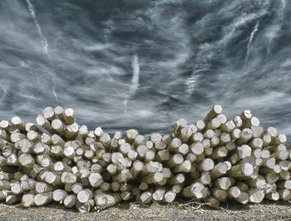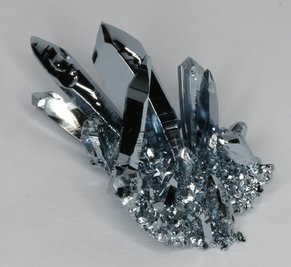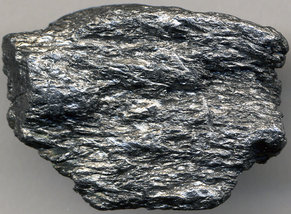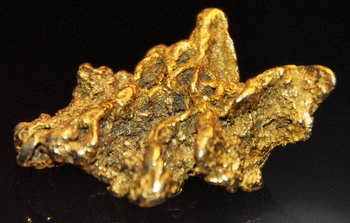Aggregates (e.g. gravel) | Aluminum |
Antimony | Asphalt |
Barium | Bauxite |
Beryllium | Cadmium |
Calcium | Carbonatites |
Chromite | Clays |
Cobalt | Copper |
Corundum (e.g. Sapphire & Rubies) | Diamonds |
Dimension Stone | Dolomite |
Feldspar | Fluorine / Fluorspar |
Gallium | Garnet |
Gemstones | Gold |
Graphite | Gypsum |
Halite | Indium |
Iridium | Iron Ore |
Kaolin | Limestone |
Lithium | Manganese |
Marble | Mica |
Molybdenum | Nickel |
Osmium | Palladium |
Perlite | Phosphate Rock |
Platinum | Potash |
Pumice | Pyrite |
Quartz / Silica / Sand | Rare Earths |
Rhodium | Salt |
Silver | Slate |
Soda Ash | Sodium Carbonate |
Sulfur | Talc |
Tantalum | Titanium |
Tungsten | Vanadium |
Zeolites | Zinc |
Types of Minerals
Minerals can be categorized according to their properties such as metals or fibers. They can also be categorized according to their use such as construction minerals or energy minerals.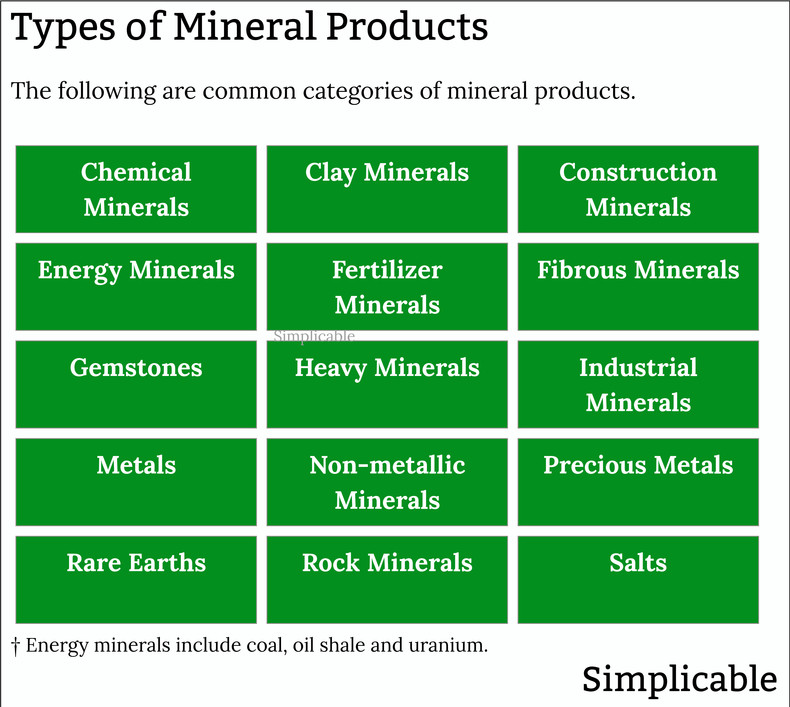
Metals
Metals are an important class of mineral that are defined by a long list of common properties in areas such as high luster, heat and electric conductivity, malleability and high density. The following are examples of minerals that are metals.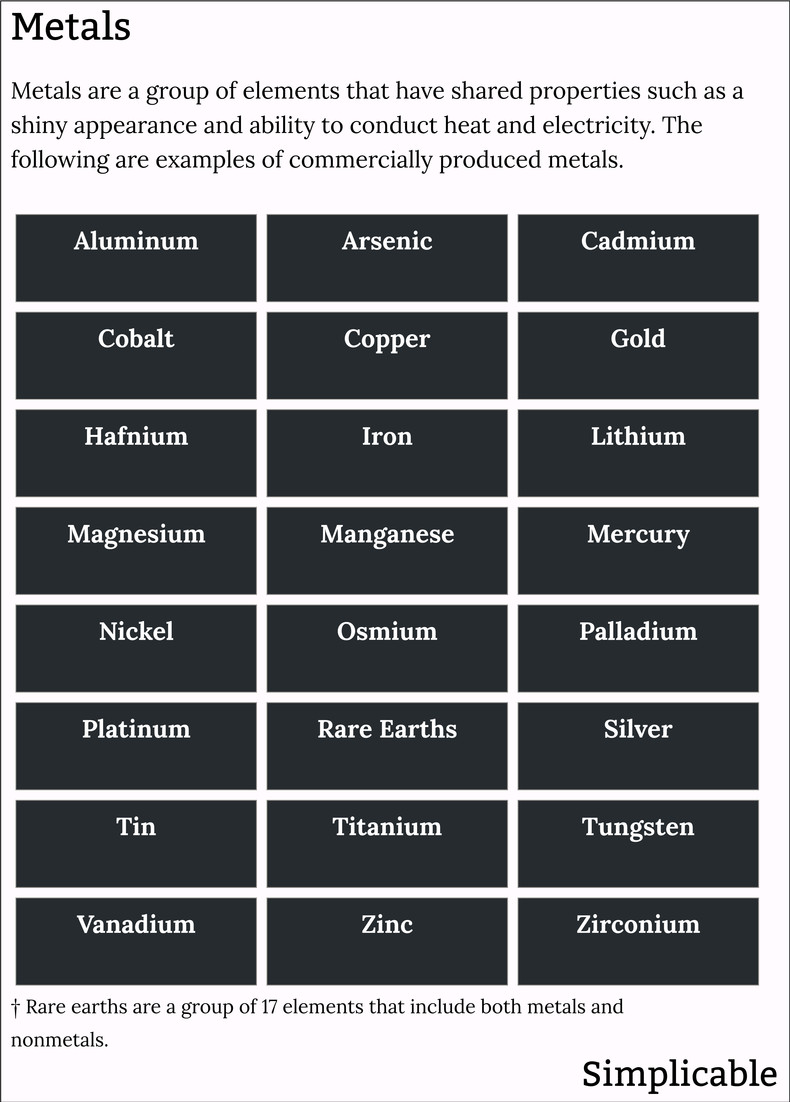
Summary
Mineral products are are naturally occurring, inorganic substances that are produced commercially. Together with organic products such as woods, these are used as the basic materials that are used to produce goods.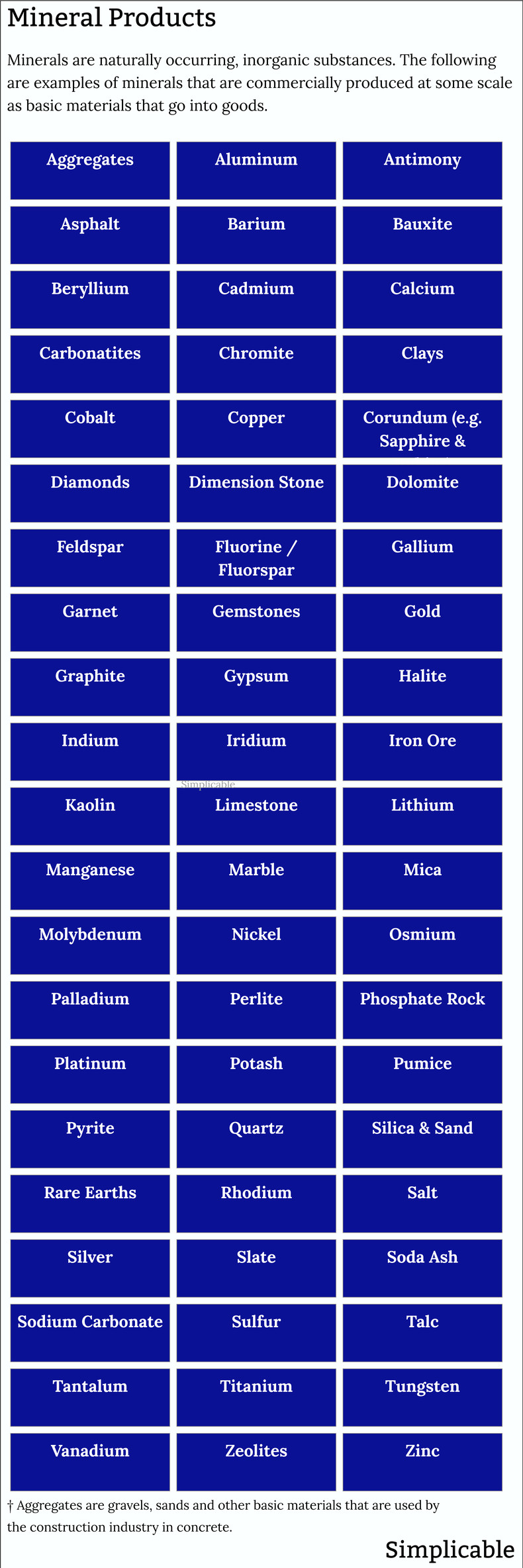
Discussion
Most consumer products are made of minerals, petrochemicals or organic materials such as wood and paper. For example, glass products are made from minerals such as lime and silica.Complex products such as electronics typically include dozens of different minerals.| Overview: Mineral Products | ||
Type | ||
Definition (1) | Inorganic natural materials that are sold on markets. | |
Definition (2) | Inorganic natural materials that are sold for use in manufacturing, construction and chemical production. | |
Related Concepts | ||

